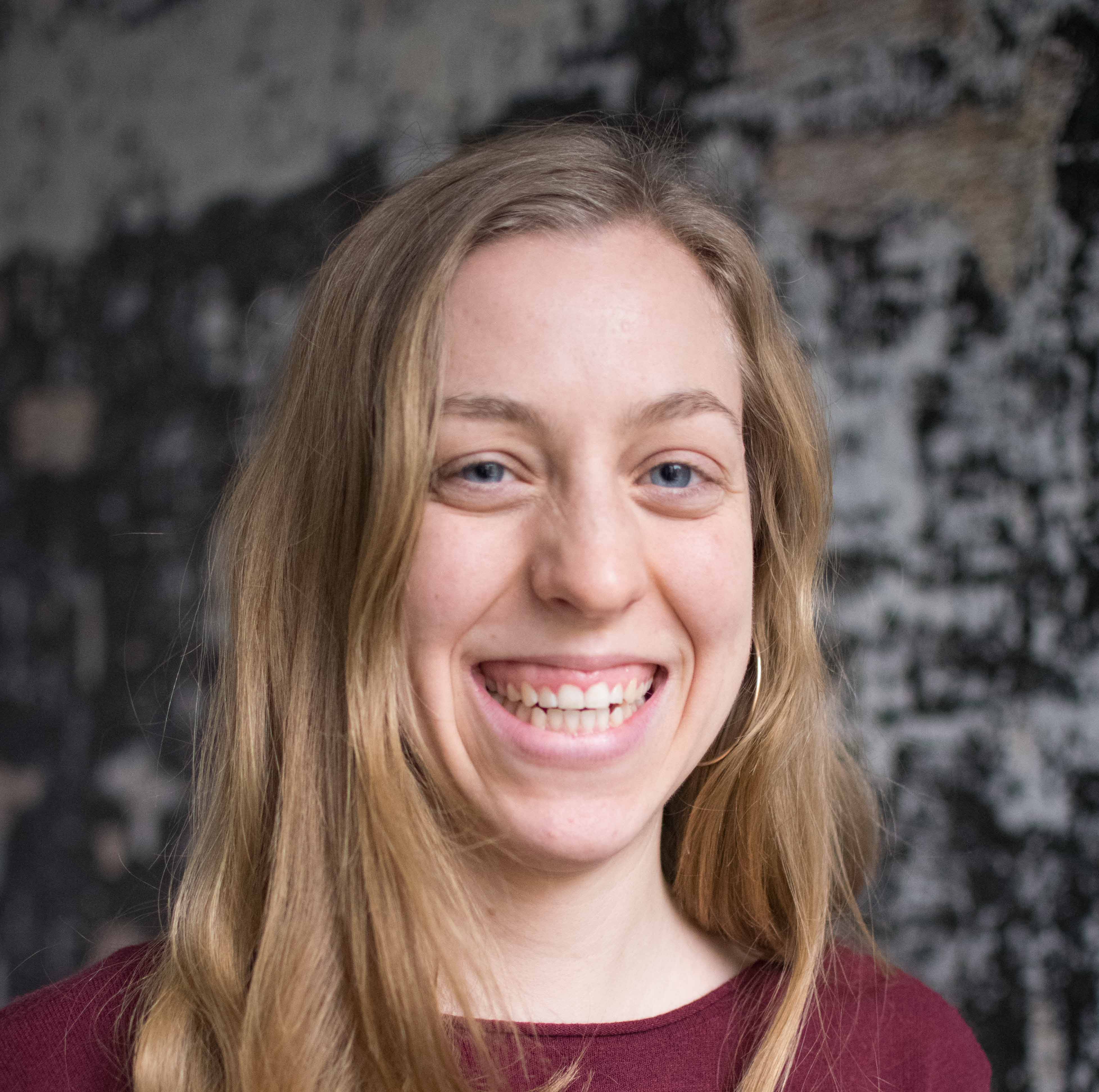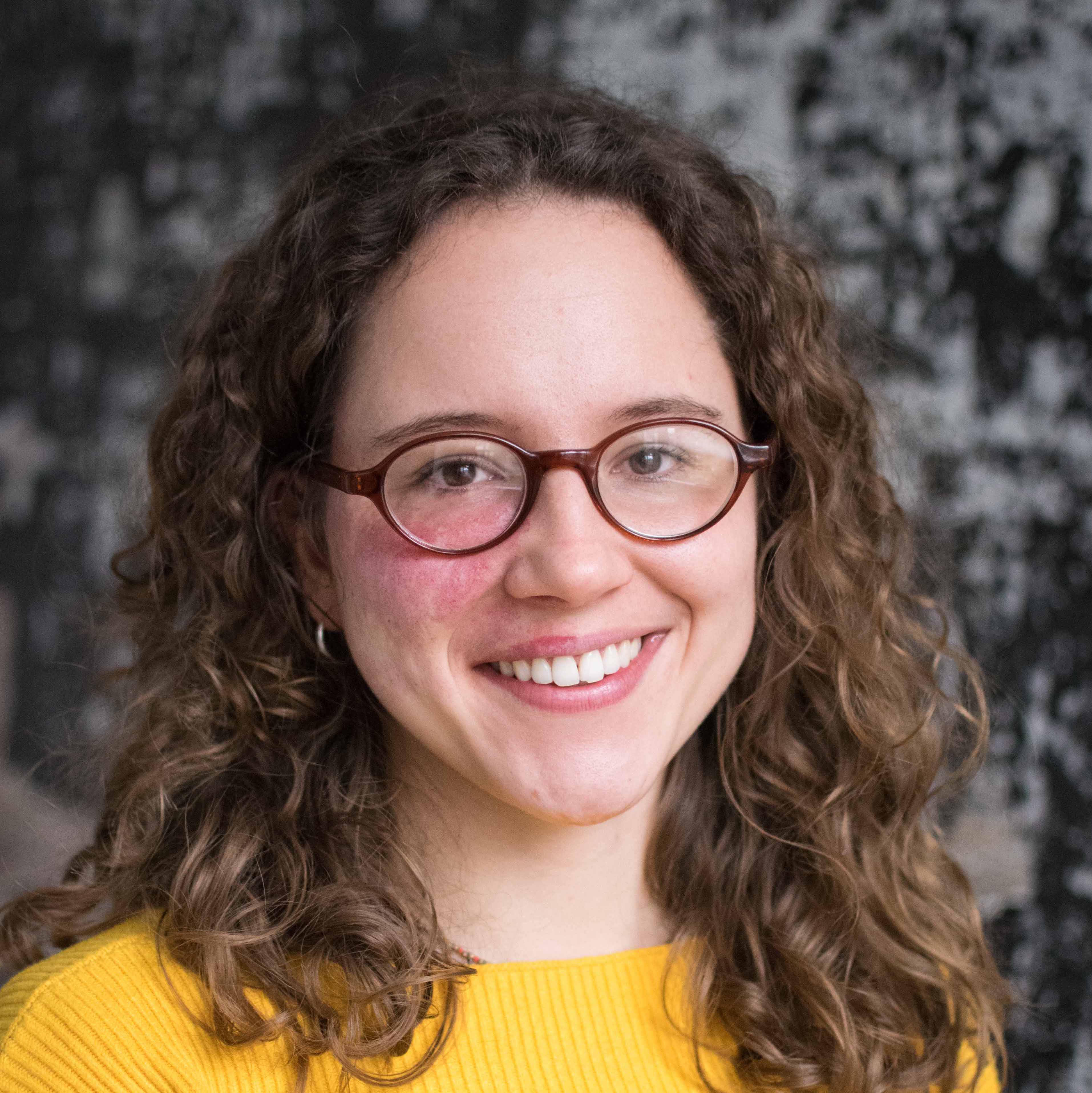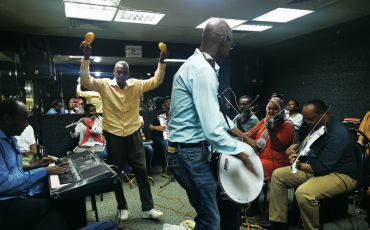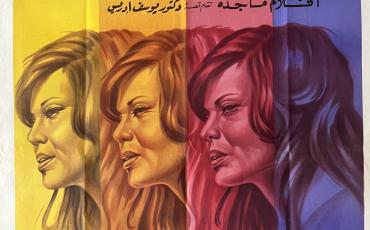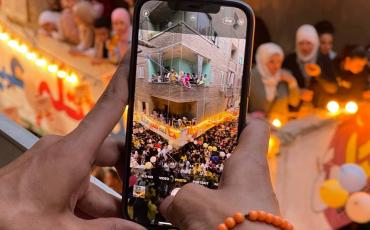Qahera is an Egyptian hijabi comic hero who uses her super powers to address pressing societal issues online. Her creator Deena Mohamed, a 24-year old artist and graphic designer, talks to Alsharq about the character of Qahera, her Muslim feminist message and the experience of creating her web comic. Lissy Kleer and Clara Taxis interviewed her for Alsharq.
Welcome back! You recently published the first new comic since 2015. Why did Qahera’s return take so long? Was there something special that inspired you to relaunch?
I never meant to take a break. I have been procrastinating since 2015 and had so many excuses such as working on a graphic novel that is published now in Arabic. I'm working on the second and third part and then it will be published in English as one book. But I think working on the comic was also a burden for me because I was very young. I started when I was 18 and was doing it anonymously. It kind of happened by accident: I published the first comic on my personal tumblr account as a joke between me and my friends and it went off from there. During that time, I did not have a support network of other artists, activists and feminists. Through the comic I met many people from whom I learned so much. Now, I have a much stronger base and I feel more confident to express myself.
Your recent comic deals with anxiety. Why?
There is a specific theme for every comic but a when getting back to it after a long time, I wanted to start with something more general. I was thinking about all the stereotypical reasons for why you would want to be a superhero. One reason is that superheroes are not afraid of anything such as harassment but I also included practical things: Qahera can fly, she doesn't have to worry about traffic. I wanted to address anxiety – because I am personally not a superhero. My work is also not a straightforward super hero comic. It's a political and social commentary published in an uncertain time. Qahera in this comic represents a regular human perspective – including anxieties.
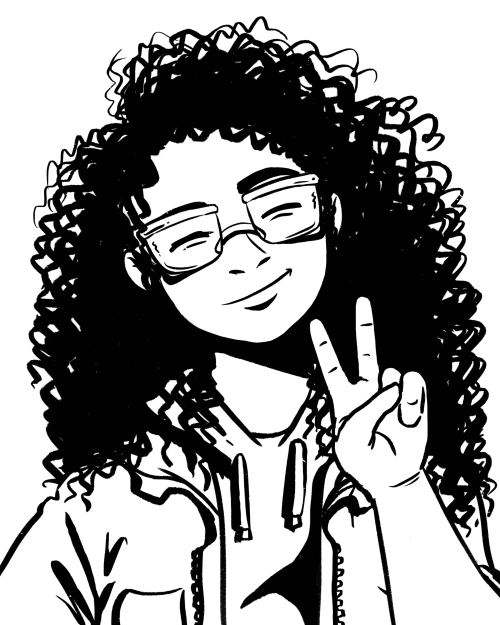
So you are saying that your work is political but is it also activist?
People tend to assume the comic is some kind of brave form of resistance and it's not. I don't consider myself an activist. It's very chill. Whenever people would talk about harassment, they would refer to my comic. But there are so many activists that do so much more. That's why I did a comic that talked about real Egyptian women in protests.
Concerning some of the issues you just mentioned there is the popular conception that „everything was better during the revolution“- also concerning women issues: how do you evaluate this revolution-nostalgia?
I wouldn't have made this comic without the 2011 revolution. The comic is affected by it the same way I am. I was 16 during that time, so I wasn't so much in the midst of it. But Qahera is pretty much born out of revolution nostalgia. When I started in 2013, we were still in the middle of everything. During the revolution we would just assume that everything would get better. But history has shown us, that you don't depend on a revolution to improve women's rights because it's always the last thing people think about. There are generally a lot of misconceptions about the past. In Egypt for example, we have this common perception that things were better when women were wearing mini-skirts in the 50's – but these were only upperclass women. Women were also commonly getting married at 13, so it's not an indication of anything. Now things might be better for women of a certain class, but not for all women. This matters to me especially because there is a very visible and clear seperation along the lines of class and I enjoy ceratin privileges that all women should be able to have.
You are publishing your work in Arabic and English. Who is your audience?
When I started, the comic was intended for a very small circle of friends. But then it got many shares and a lot of people liked it. But I still assumed the comic would attract a mostly English-speaking audience. I thought the comic was too corny for Egyptians because it is superhero stuff. But then people asked me to translate it into Arabic. Then it became very popular among Arabic-speakers – which is something I didn't expect. Me, personally, I don't like translated stuff, I like stuff that is made for me. When I translated the comic, I realized that I had no idea who my audience was. I then started to make it more and more Egyptian. Now I'm doing it in two languages and I always think about both audiences. However, my priority is Muslim women. As they are the ones who are being represented in the comic, I tend to take their opinion more seriously because it's one of very few comics representing a female Muslim Egyptian perspective.
Another question about translating: You translate your comics yourself. What issues come up?
I have so much trouble with translating. I tried it both ways, writing in English at first and translating it afterwards or the other way round. Either way I find it difficult to translate all layers of meaning. I also don't just translate, I tend to adapt it as well and also pay attention to relevance. I never did the Femen comic in Arabic for example because it's not relevant to an Egyptian audience.
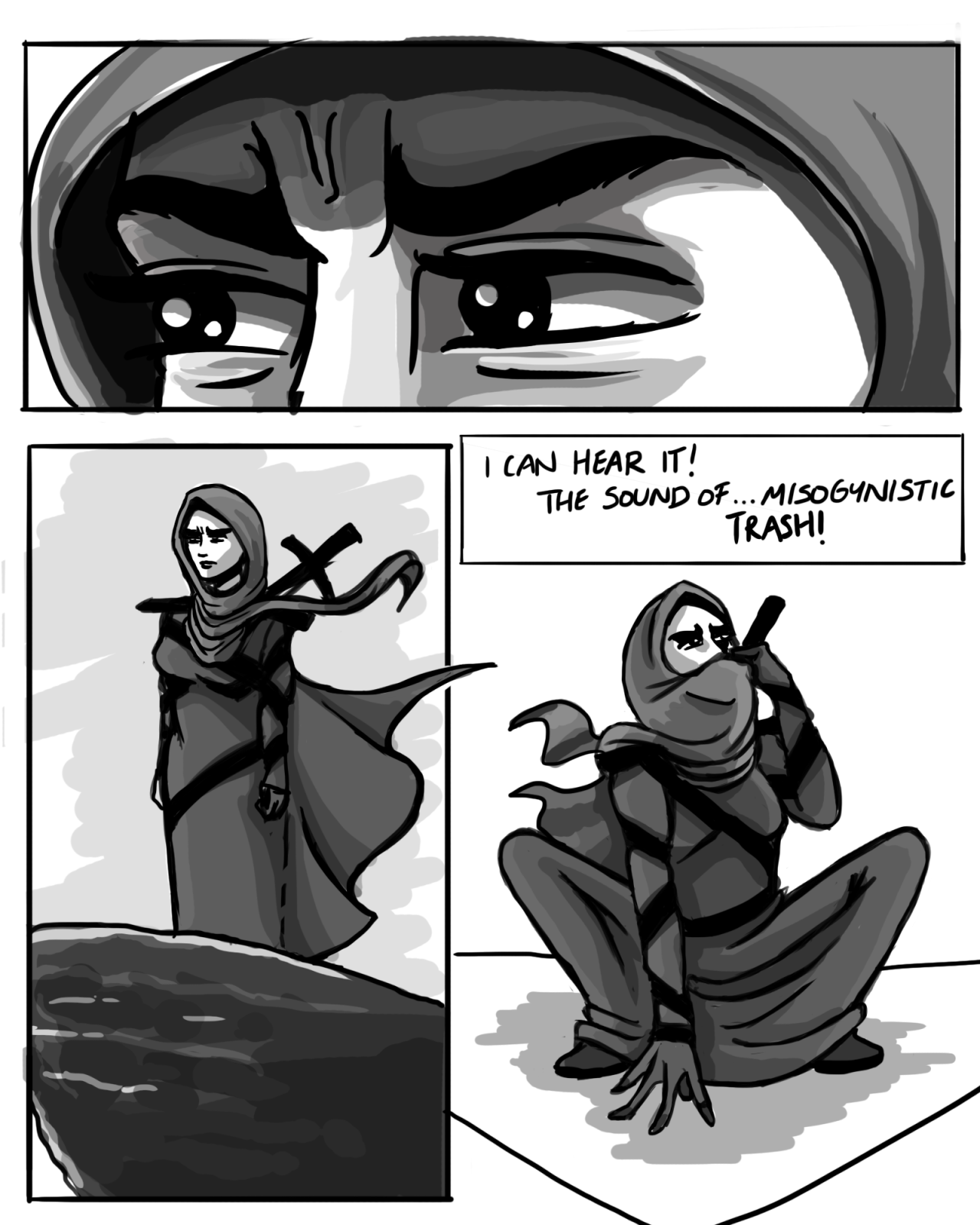
Through publishing your work online, you can interact with your audience more directly. What kind of feedback do you get?
The comic is popular but not too popular either. People who read it are usually looking for it and the feedback by Egyptians is mostly positive, surprisingly especially by men. I am a very sensitive person which is why I wouldn't have continued if the feedback was mostly negative. The negative comments by Egyptians are completely different than the comments made in English because when I started in 2013/14 [editor's note: after the deposition of Mohamed Morsi] Egyptians had a lot of identity issues and had a problem with the main character wearing hijab. It made them ask: What ideologies does she support?
If it gets picked up, for example by BBC, there are extremely negative comments by islamophobes. This was actually my first exposure to islamophobia. The most negative feedback comes from white American men though – it's always very violent, too. It's interesting to see the assumptions people make based on my work. With western journalists there is a tendency to assume that my work is very autobiographic – and it isn't. The degree to which people belittle your imagination is interesting to me. There is always the assumption that “Third World artists” or artists that aren't Western are always speaking for their whole country. That they just can't be imagining and writing and addressing things the way anyone else does.
We were trying to avoid the hijab-question because it's so chliché but it keeps coming up so: Why the hijab?
First, I just thought it would be interesting to have a superhero that doesn't look like the other ones. Second, I like things that represent reality and I wanted her to look like most Egyptian women, to represent them. Most of my friends look like her. Originally, I was complaining about Muslim men. So I wanted to create a women that is very clearly Muslim as well. Also, from a character design perspective it's just nice to draw someone that looks different to stereotypical designs of female super heroes. I would think about how she would fly and what that would look like. And in Egypt a veil such a practical costume. You can just pull up the niqab and you are unrecognized. It's a character that feels both – different and familiar.
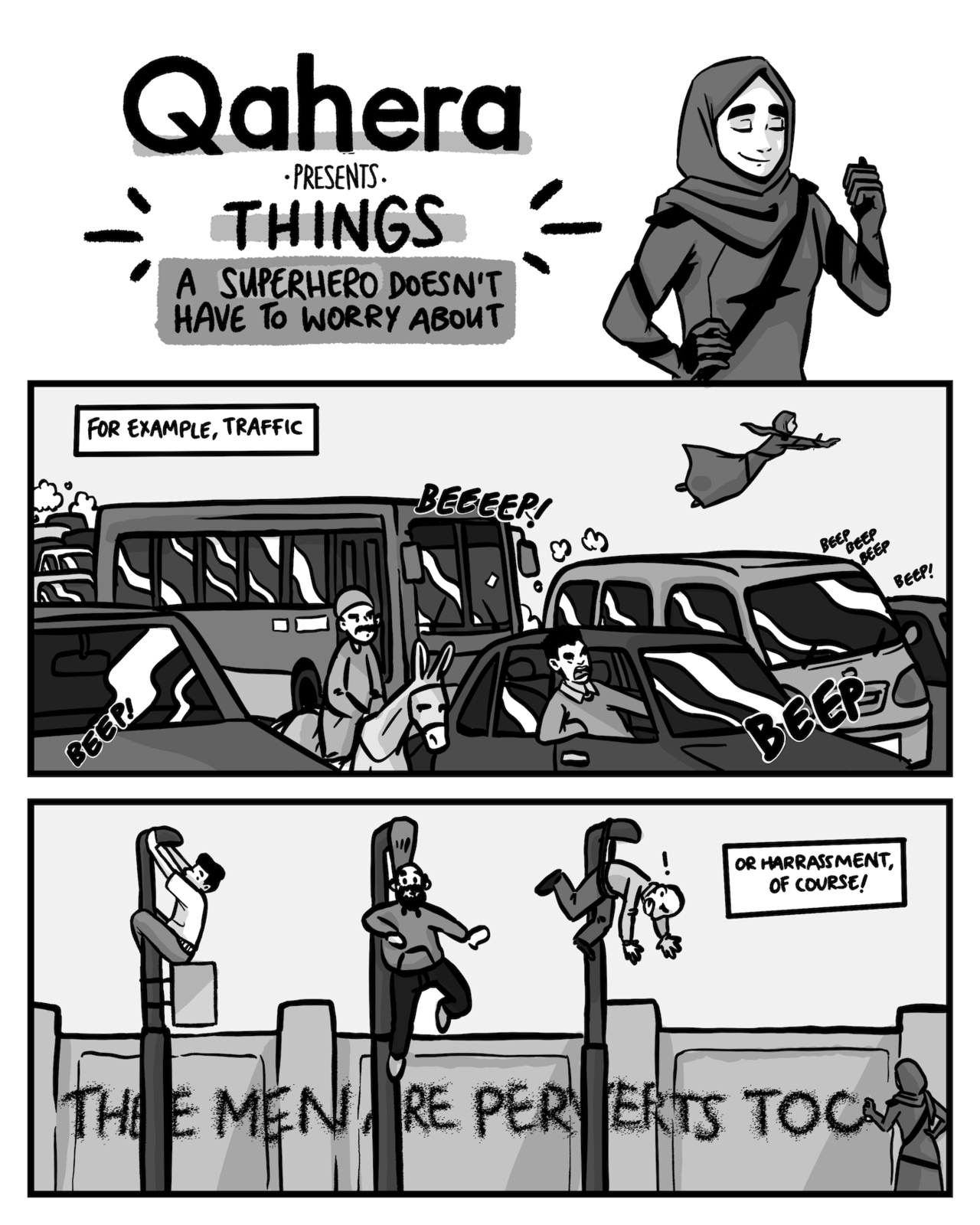
Throughout your comics you are dealing with different “opinions” about (Muslim) women that you reject. What are these?
There is a ton of them. For example: “Muslim women are victims and they need to be rescued. They are incapable of free thought.” In the Egyptian upper classes you will also find people who think like this - not about Muslim women in general, but about women who wear the hijab: They associate it with less education and a lower class, which is very stupid and outright discriminatory. Classism is everywhere in Egypt. So from abroad it's islamophobia, in Egypt it's classism. I think the most obvious comic is the one about women's choices …
…which deals with the decision of women to wear the hijab or not.
You'll get objectified either way. Whether you chose to wear hijab or you don't is not the point. The point is to have the freedom to make a choice. The desire to control women's dress is worldwide. This is not exclusive to Muslim women at all.
You criticized Femen pretty harshly in one of your comics but then in another interview you softened your views based on some criticism put forward by a reader. Can you tell us the story?
There was a lot of intelligent critique of the Femen comic after I posted it. One of them stated that Femen face so much violence and it does not help to face them with more violence – even in that hypothetical scenario of a comic. I started getting more interested in feminist critique and academic critique in general to give things more nuance and to improve my work. The problem is to define feminism through gender issues only, without taking anything else into account. You can't be a feminist if you are oppressing other women. You can't be a feminist if you are classist or racist. A lot of people in Egypt tend to disrespect feminism because they are very familiar with a very bourgeois type of feminism that is aligned with the state. People offend your intellect when you are expected to believe a feminism that claims to fight for women’s rights but disrespects other human rights.
How do you address this in your work and how would you describe your own outline of feminism?
I’ll explain it with the Femen comic: I made it because after the first comic a lot of commenters were blaming Islam and religion. With the Femen comic I wanted to say that the problem is not religion. It's patriarchy. You cannot claim to be on someone's side and then try to change them and totally disrespect their way of living. I created Qahera to complain about things within my culture but it's not an invitation to attack my culture.
Feminism has to be inclusive, it has to be aware of other things also. I have to be more careful about what I am saying now because of the wider range my work gets. I'm trying to make something that is honest but also thoughtful. What I am currently trying to do is to take something that is affecting Egyptian women and see in what ways it is a global and relatable issue. Not just for women but for everyone. Because every instance of injustice is always a symptom of something bigger.
It is International Women’s Day on March 8th. What does this day mean to you?
I always feel like it's an empty gesture without real empowerment. At the same time, compared to a very hostile environment that thinks women should stay in their homes, these gestures and events can be a safe space. The bar is very low. But the groups that make the most difference – you usually do not hear about them.
Does the day get any public attention in Egypt?
A lot. From cooperates that do events and sometimes charities. Kind of like when McDonalds turned their “M” upside down for women's day. Everything is becoming more commercial.
What’s your vision for Qahera in 2019?
I am working on the second part of my book. And I also want to do one comic every month. This year I want to have it up and running again.


